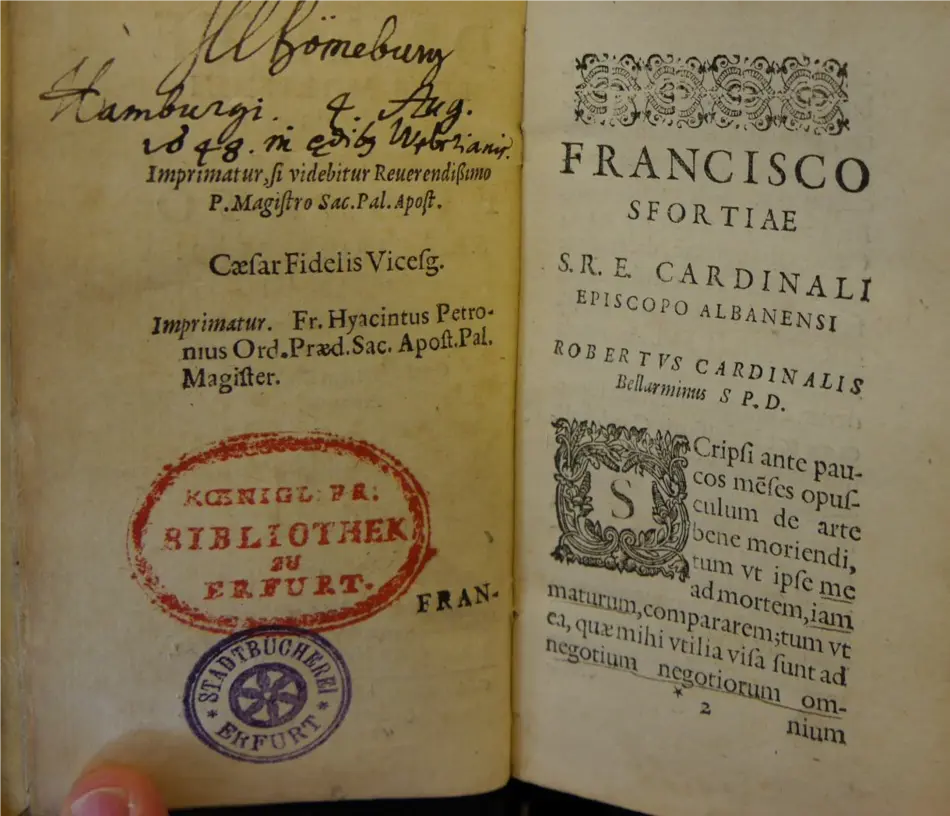Johann Christian von Boineburg, book collector, patron of the arts, chief court marshal at the court of the Mainz Elector Johann Philipp von Schönborn, and not least friend and supporter of the young Gottfried Wilhelm Leibniz, is no stranger to Erfurt. His library has long been an ornament to the city; his son, Philipp Wilhelm von Boineburg, keeper and propagator of the valuable book collection was appointed governor of Erfurt in 1702 and rector of Erfurt University in 1705. The library bequest as well as Boineburg's scholarly correspondence, some of which was previously unknown, which Prof. Gángó collected in German archives and libraries, form the material basis for the research.
In Padua, Prof. Gángó will focus on Boineburg's problems of faith, which crystallised in a special way in his conversion. Boineburg, who received a Lutheran education in Jena and Helmstedt, was converted at the Imperial Diet of Regensburg in 1653. In the literature, his better career prospects at the court of the Mainz Elector Johann Philipp von Schönborn are given as possible reasons. Here Gángó wants to overcome the previous state of research and also reveal the intellectual motives for the conversion. To this end, he will also examine the collective thought processes in Boineburg's correspondence with other scholars. This collective communication and thought process has a lot to do with Italy and cannot be understood without the Italian context. Impulses of the Counter-Reformation in the 17th century in general and also specifically in Boineburg's case came from Rome, which will be shown using the collected source materials as a basis for the historical reconstruction of scholars' communication with Italy.
I am pleased that my previous basic research on Boineburg and Leibniz is also receiving great international recognition in this way and I am looking forward to the new research results that will be revealed in the work.

